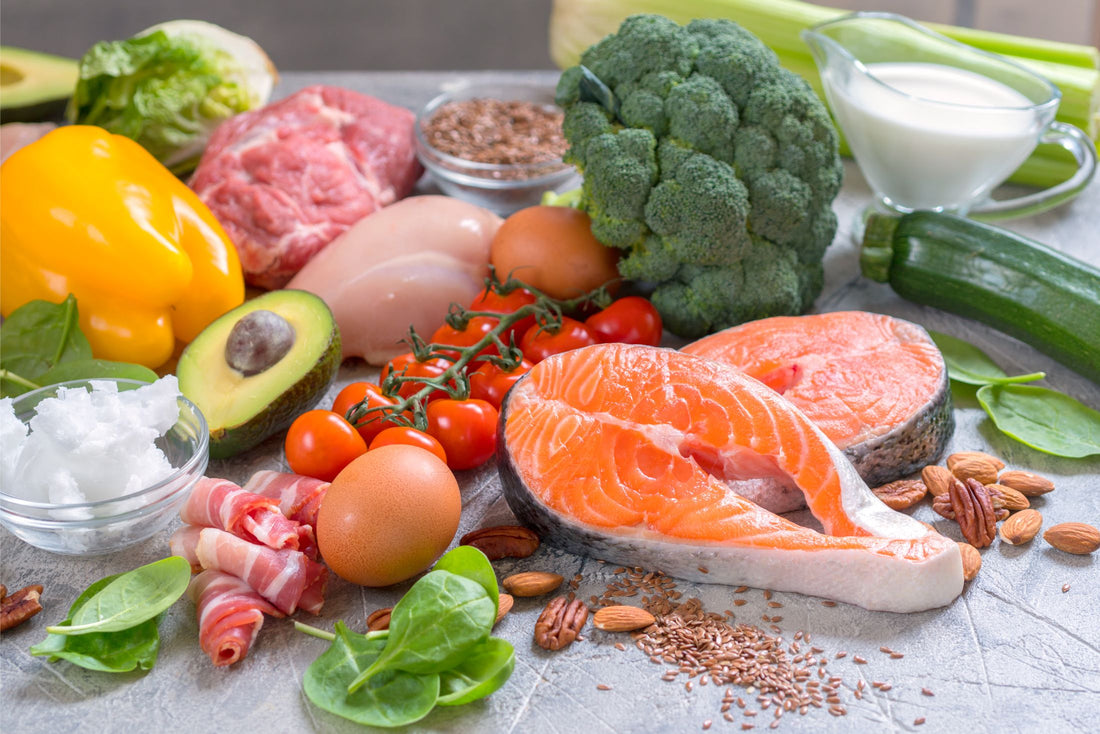
How Zinc Can Benefit You Based on Scientific Research
Share
Often overshadowed by more well-known nutrients, zinc plays a critical role in the human body. It bolsters the immune system, promotes growth and development, and more.
But our bodies can’t store zinc.
As such, you need to consume zinc-rich foods to experience its benefits. So, what foods can you incorporate into your daily diet?
Today, we’re exploring scientific data on the health benefits of zinc. We’re also going to share tips on the different types of food you can incorporate into your plant-based diet to maximize its nutritional value.
5 Health Benefits of Zinc in Your Diet
Zinc is an essential mineral that contributes to your body’s metabolism, immune system, and growth, among other things. In fact, over 200 of our body’s enzymes need zinc to function.
Below are the specific ways that zinc benefits our health, according to science and research.
#1 – Clearer Skin
Dermatology has an established history and science of using zinc therapy to treat skin conditions. It has been used to help with acne, warts, pigmentary disorders, and rosacea. It’s also an essential ingredient in anti-dandruff shampoos.
Additionally, clinical studies have suggested that ingesting zinc can help reduce leprosy symptoms. Although these studies also warn that zinc isn’t a cure for all these diseases, as its efficacy largely depends on the underlying cause.
#2 – Healthier Eyes
Because zinc plays a vital role in the eye’s function, many research papers link it with eye health. In fact, a study found you can lower your chances of developing macular degeneration by 25%. That is, if you take in high doses of zinc together with vitamins C and E and beta-carotene.
Another study suggests that specific zinc doses can protect you from vision loss.
#3 – Better Growth and Development
According to the World Health Organization, zinc is crucial for children's growth, metabolism, and development. And scientific research backs this up.
One study found that zinc can improve cognitive and motor development in infants, especially those with very low birth weight. A second study reports that it can help increase growth for children under 5.
#4 – Improved Immune System
With enzymes relying on zinc, its part in the immune system is multifaceted and complex. As such, many scientific research focuses on the effects of zinc deficiency on the body.
Studies show that zinc deficiency can result in:
- Reduced activity of the thymus and thymic hormones that keep your immune system running
- Imbalance in T helper cells, required for adaptive immune responses
- Decreased response to vaccination
- Impaired functions of innate immune cells
#5 – Boosts Reproductive Health
For women, zinc is necessary for reproductive cycles, ovulation, fertilization, and a healthy pregnancy. For men, zinc helps with the development of the testis, epididymis, and prostate. It also affects sperm cell development and maturation, ejaculation, and other reproductive functions.
Zinc affects men and women this way because it’s involved in the metabolism of androgen hormones, estrogen, progesterone, and prostaglandins. It’s also a key mineral for the absorption of steroids.
Still, while zinc is linked to multiple health benefits, studies warn that it might affect people differently. They also state that more research is needed for more conclusive evidence of all these benefits.
4 Best Sources of Zinc in Vegetarian Diets
Because the human body doesn’t store zinc, we must regularly consume foods rich in zinc. The Recommended Dietary Allowance (RDA) for adults is 11 mg a day for men and 8 mg for women. Moreover, pregnant individuals will need slightly more at 11-12 mg per day.
Unfortunately, most high-zinc foods are primarily animal products, making it difficult for people following a plant-based diet to consume the required amount. Thankfully, many plant-based foods high in zinc will help you keep a well-balanced diet.
Here are the 4 plant-based foods that are rich in zinc.
- Styrian Pumpkin Seeds. One of the health benefits of Styrian pumpkin seeds is its rich nutritional content. In fact, for every 100-gram serving of pumpkin seeds, you can get 7.64 mg of zinc.
- Legumes. With 2.5 to 5.0 mg of zinc for every 100 grams, legumes have one of the highest concentrations of zinc. Plus, pre-soaked legumes can help improve zinc absorption.
- Whole Grain Foods. Aside from being a good source of fiber and antioxidants, whole grains are also a great source of zinc. Their fiber-rich outer layer supplies zinc along with other nutrients.
- Tofu. While tofu is often used to supplement protein intake in a plant-based diet, it can also provide your body with doses of zinc.
Looking for zinc-rich plant-based foods in Vancouver?
At Nutrika, we curate a range of nutritious plant-based food products for a fresher and more sustainable diet. Learn more about our tasty snacks, natural oils, and nutritious powders to see what works for you.